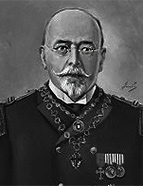

Conversely, the explanation for colonial decline could be traced to the weakening of the navy and the absence of a policy prioritising maritime affairs, its ports, and maritime activity.
Almeida d'Eça divided the history of the Portuguese Navy according to the types of ships used in each period: (a) the galley navy, comprising ships employed in the defence of the Kingdom in the 13th and 14th centuries; (b) the ship/barge navy, used for trade and conquests in Africa during the 15th century; (c) the caravel navy, one of the most emblematic ships of the Age of Discovery; (d) the round ship navy, associated with the conquests in India in the 16th century and navigation to Brazil in the 17th century; (e) the line ship navy, prominent during the Napoleonic wars in the 18th century; (f) the corvette navy, a key vessel in repressing the slave trade in the 19th century; (g) the gunboat navy, used for surveillance of the colonies in the 19th century; and finally, (h) the cruiser navy, employed in general services in the 20th century. By outlining this interpretative model, he paved the way for an analysis of Maritime History that would integrate the history of the Portuguese Navy with other technical areas such as cosmography, nautics, cartography, legislation on maritime trade, and the organisation of war and trade navies. This interpretation was closely related to the contributions of studies by other naval officers. In fact, the network of officers in the Portuguese Navy around the Clube Militar Naval and its magazine, Anais, expanded from the 19th to the 20th century, including notable figures such as Baldaque da Silva, Ernesto de Vasconcelos, João Braz de Oliveira, and Henrique Lopes de Mendonça. Almeida d'Eça belonged to this generation of naval officers who, through a wealth of writings in journals such as Anais do Clube Militar, Boletim da Liga Naval [Bulletin of the Naval League], Boletim da Sociedade de Geografia [Bulletin of the Geography Society], and the Memórias da Academia das Ciências [Memoirs of the Academy of Sciences], advocated for Portugal's role as a maritime and colonial power. They envisioned Portugal’s naval revival as a maritime vocation that should translate into the development of activities such as fishing, maritime trade, cabotage, nautical sports, and the strengthening of the Merchant Navy.
